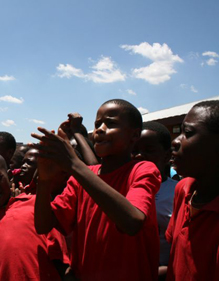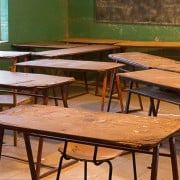|
Getting your Trinity Audio player ready...
|
 By Zaheer Cassim
By Zaheer Cassim
When a public official steals millions of rand through nepotism and shady deals, there is generally a public outcry for that person to be removed from office. Sadly, this same zeal for justice does not filter down to public schools, where thousands of learners are short-changed by corrupt principals and teachers.
Over the last five months, Corruption Watch has received over a hundred reports of financial mismanagement at, and theft, from public schools. In more than half of these stories, the principal of the school was involved in providing a tender to a friend for an inflated price or withholding financial documents from the school governing body (SGB).
Last month, Corruption Watch spoke to two employees at Montsosi Primary School in Sebokeng, who claimed that staff members were stealing food and stationery meant for the schoolchildren. They said that at the end of every month, the Department of Education provided a variety of food for the 400 children, but most of it went into the bellies of their teachers.
“Every month, 12 bags of 50kg mealie meal are delivered to the school. But the children only get two of these bags,” said the one employee, who was tired of watching the children get only pap to eat while the staffs got fruit, rice, fish and biscuits.
Stationery, soap and even the school’s gutter were stolen, the gutter sold for scrap metal by someone affiliated to the school.
Principal NR Rwairwai said there was “no truth” to any of these statements. Things “might have happened in the past”, he claimed, but he had seen none of this since taking over three months ago.
SGB head Samuel Mthembu, who was notified weeks earlier about the report, said he had spoken to the principal and subsequently keys had been taken away from the cleaning staff who had access to the food storerooms. But the principal denied that the cleaners had keys to any of these storerooms.
Corruption Watch has reported these allegations to the Department of Education, but people in the department have indicated that not much will be done. Allegations are too expensive to investigated, explained an official, unless someone was willing to lay a formal complaint.
The whistle-blowers who spoke to Corruption Watch believe this is one of the main reasons people don’t report corruption in schools. “They will make sure my name is blemished and maybe one person will be fired,” the source said.
The matter has been passed on to NGO Section 27, which recently took the Department of Education to court for not delivering textbooks on time in Limpopo.
In more than half the cases brought to Corruption Watch, whistle-blowers say they have reported incidents of corruption to the Department of Education, but that nothing has happened. But there have been several instances in which the whistle-blower has been fired for enquiring into the management of the school’s finances.
Limpopo, Gauteng, KwaZulu-Natal and Mpumalanga have had the highest number of reports of corruption involving schools, according to Corruption Watch’s records.






